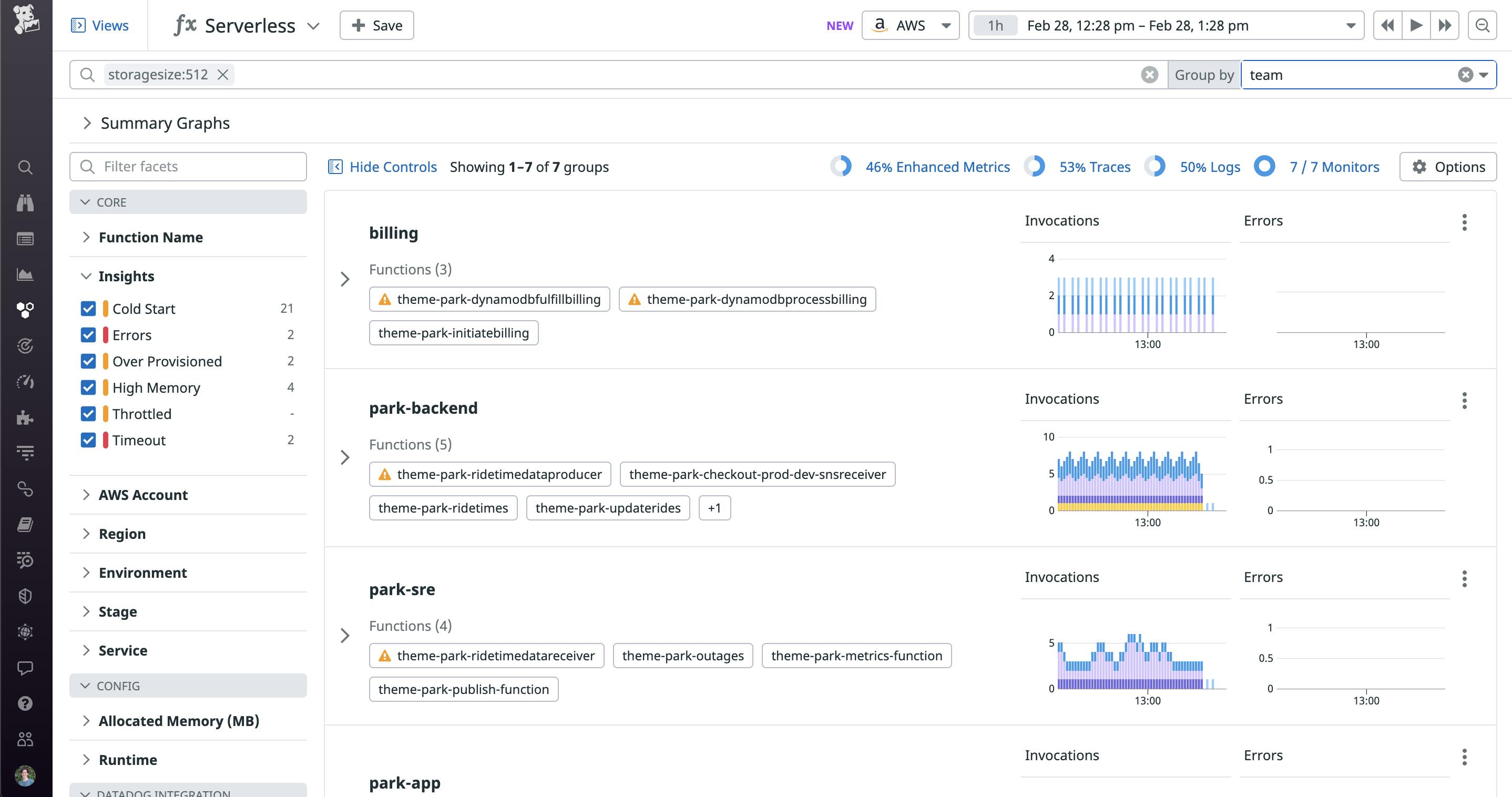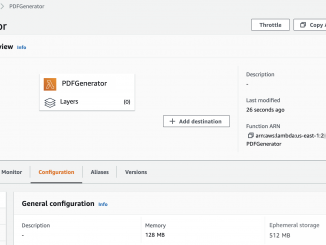

Interested in learning more about how IronWorker stacks up to your current constraints in the AWS Lambda environment? Want to get advice from our team about how the simplicity and benefits of switching over to an Iron solution? Reach out to our friendly support staff to get answers to all of your questions and get started with the transition to ironclad serverless computing. Ephemeral storage is used to store data temporarily and it gets removed as soon as the service is terminated. Add to that IronWorker's other features, like its ability to support on-premise deployment, scheduling, and dedicated private clusters, and making the switch is simple. For instance, while Lambda's default memory size is 128MB with a range of 64MB to 1024MB, IronWorker starts out with a higher default of 320MB and a higher range of 320MB to 2048MB.īeyond that, IronWorker is able to offer a timeout limit of up to 60 minutes with long-running workers also available, compared to the timeout limit of Lambda that sits at just 60 seconds. The limits are of primary concern to people who find themselves frustrated with Lambda, and IronWorker doesn't disappoint.

What's more, IronWorker supports every major programming language and, to top it off, it has higher limits than Lambda does, which is certainly pertinent to the situation you currently find yourself in. If you're not familiar with IronWorker, it's much the same as Lambda, but with higher limits and a longer history.Īt the time of Lambda's release, IronWorker already had 4 years of production under its belt and had long been running on multiple clouds, including AWS, Rackspace, and Microsoft Azure along with your on-premise and private cloud solutions. When Lambda was first released, it was quickly recognized by the Iron.io team as an almost identical product to IronWorker, with some caveats. AWS recently announced that Lambda functions now support up to 10 GB of ephemeral storage that is preserved for the lifetime of the execution environment. Simply put, if you have a need to exceed the 512MB hard limit AWS Lambda places on the /tmp directory, you have to choose an alternative that doesn't give you such a limit. Configuring ephemeral storage (console) Accepting function memory recommendations (console) Configuring triggers (console) Testing functions (console) Function versions A function has an unpublished version, and can have published versions and aliases. If there is a requirement to persist the data after execution, make sure to offload it to an external storage system (such as EFS drive or Amazon S3).Finding An Alternative Without Hard Limits

For each function invocation, the function should assume availability of additional local storage provided via the Ephemeral storage option and after execution is complete, it disappears afterwards. This way, users get access to a secure, low-latency temporary file system within Lambda Functions, with the flexibility of reconfiguring the storage as required up to 10 GB.Important thing to note, Ephemeral storage is a temporary file system available within each Lambda function execution and not shared across all function invocations. Even though it solved issues associated with storage, users still faced performance degradations through cold start and significantly extra cost for having to use EFS, not to mention the general complexity of having to manage more moving pieces.Īll of this is now solved as AWS introduced the Ephemeral storage option included in Lambda, which allows users to configure temporary storage required during each execution between 512 MB and 10 GB. If you have ever used AWS Lambda for processing large files (such as PDFs, images, etc.) or running ETLs on massive dataset or for operationalizing Machine Learning models, you know the pain of putting up with runtime storage requirements and performance.Īs a workaround to get more local storage, users had to mount an Elastic File System (EFS) to the Lambda function or use S3 as intermediary storage to read/write data during execution. Benefits of new feature Lambda Ephemeral storage


 0 kommentar(er)
0 kommentar(er)
